When considering a trip to Saudi Arabia, one of the first questions that comes to mind for many potential visitors is, “Is it safe?” Saudi Arabia, a nation historically known for its rich cultural heritage, stunning deserts, and Islamic religious significance, has been making strides to attract international tourists. With the launch of Vision 2030, a strategic plan spearheaded by Crown Prince Mohammed bin Salman, Saudi Arabia has opened its doors to tourists like never before, focusing on diversifying its economy away from oil dependency.
But as the kingdom seeks to establish itself as a top-tier travel destination, concerns about safety, local customs, and regulations persist among travelers. This article will take an in-depth look at whether Saudi Arabia is safe to visit, providing a comprehensive guide for tourists. We’ll cover everything from crime rates and health precautions to cultural norms and facts about the local laws.
Saudi Arabia’s Political Stability and Tourism

Saudi Arabia, officially known as the Kingdom of Saudi Arabia, has been relatively politically stable, especially in recent years. This stability is crucial for the growing tourism sector, as political unrest or instability can often deter tourists. The government of Saudi Arabia has been heavily investing in security infrastructure to ensure both local citizens and tourists feel safe.
As part of its Vision 2030 initiative, the government has aimed to create a welcoming environment for international visitors. In September 2019, Saudi Arabia introduced its new tourist visa program, allowing citizens from 49 countries to apply for e-visas or visas on arrival. This was a monumental shift for a country that was traditionally closed off to non-religious visitors, except for business travelers and Muslims visiting for the Hajj and Umrah pilgrimages.
Keep reading: Things to Avoid While Traveling for the First Time
Crime Rates in Saudi Arabia
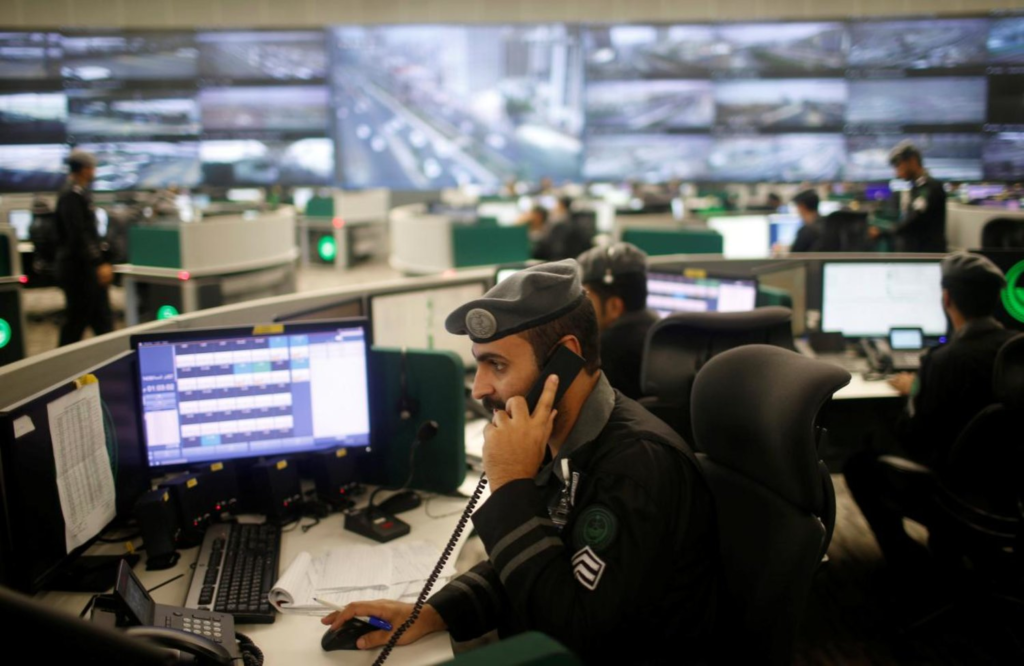
One of the main concerns for travelers is crime, and when it comes to Saudi Arabia, the country is considered relatively safe in terms of crime rates. According to a 2023 report by the Global Peace Index, Saudi Arabia ranks as one of the safer countries in the Middle East. Violent crime is rare, and petty crimes like pickpocketing, theft, and scams are much less common than in many Western countries or even other tourist hotspots in the Middle East.
The kingdom’s strict legal system, based on Islamic law (Sharia), plays a role in maintaining low crime rates. Punishments for crimes, especially theft, violent offenses, and drug-related activities, are severe. This is one reason why many tourists feel a sense of security while walking the streets, even in larger cities like Riyadh, Jeddah, and Dammam.
However, as with any travel destination, it’s essential to exercise common sense. Travelers should remain vigilant in crowded areas and avoid displaying valuables. In tourist-heavy zones, such as shopping malls and markets, pickpocketing can occasionally occur. That said, reports of such incidents are minimal compared to many other international destinations.
Saudi Arabia’s Safety for Female Travelers
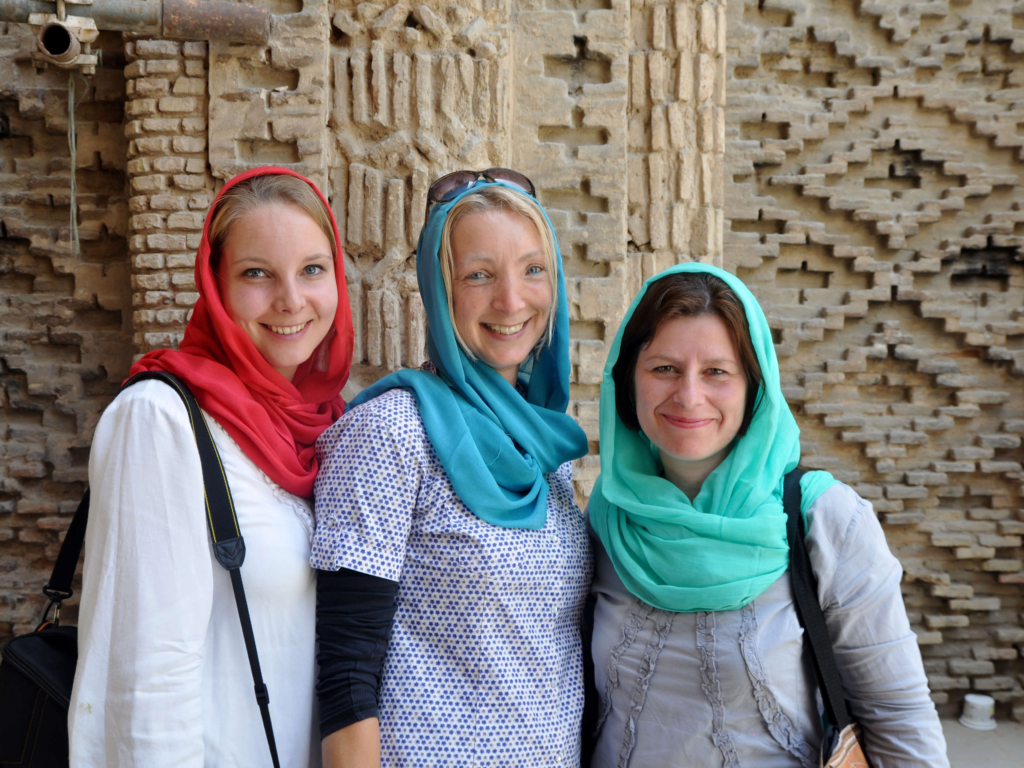
One area that often raises questions for tourists, especially women, is whether Saudi Arabia is safe for female travelers. Historically, Saudi Arabia had strict regulations concerning women’s rights and freedoms, which deterred many female tourists from visiting. However, significant reforms have been implemented in recent years, making the country more accessible for women, including female tourists.
As of 2019, women are no longer required to wear the abaya (a long black cloak) or headscarf, although modest clothing is still expected. Western female tourists should aim to dress conservatively, covering their shoulders, chest, and knees. While Saudi women often wear traditional dress, tourists are not obligated to follow these customs strictly but are encouraged to show respect for local norms.
Saudi Arabia is also moving towards granting more freedoms for women within the country. Women are now allowed to drive, travel alone, and participate in public life more freely than in previous decades. This is reflected in the tourism sector as well, with many female solo travelers reporting positive experiences.
Read also: Visit China: 10 Days Budget Planning with Tips and Travel Advice
That said, there are cultural sensitivities to be aware of. Public displays of affection, including holding hands, are not common and may draw unwanted attention. It’s also worth noting that while gender segregation still exists in some areas, such as traditional restaurants and public spaces, many newer establishments, especially those geared toward tourists, offer mixed-gender seating.
Health Precautions and Medical Services in Saudi Arabia

For tourists concerned about their health and well-being while visiting Saudi Arabia, the country offers a modern healthcare system with hospitals and clinics available in major cities. The standard of medical care is high, especially in private hospitals, which cater to expatriates and wealthy locals. Many doctors and healthcare staff in Saudi Arabia are highly trained, with many having received their education in Europe or the United States.
In terms of health risks, there are no significant disease outbreaks in Saudi Arabia that travelers need to be overly concerned about. The Centers for Disease Control and Prevention (CDC) recommends routine vaccinations, as well as those for Hepatitis A and B and, in some cases, rabies, depending on the activities tourists are planning.
For religious pilgrims visiting during Hajj and Umrah, special health precautions are necessary due to the large crowds, which can make the transmission of infectious diseases easier. The Saudi government has strict regulations in place to ensure pilgrims are vaccinated against diseases like meningitis and yellow fever.
It’s also advisable to bring travel insurance that covers medical expenses, as healthcare can be expensive for foreigners, especially if they require emergency treatment or hospitalization.
Terrorism Concerns in Saudi Arabia
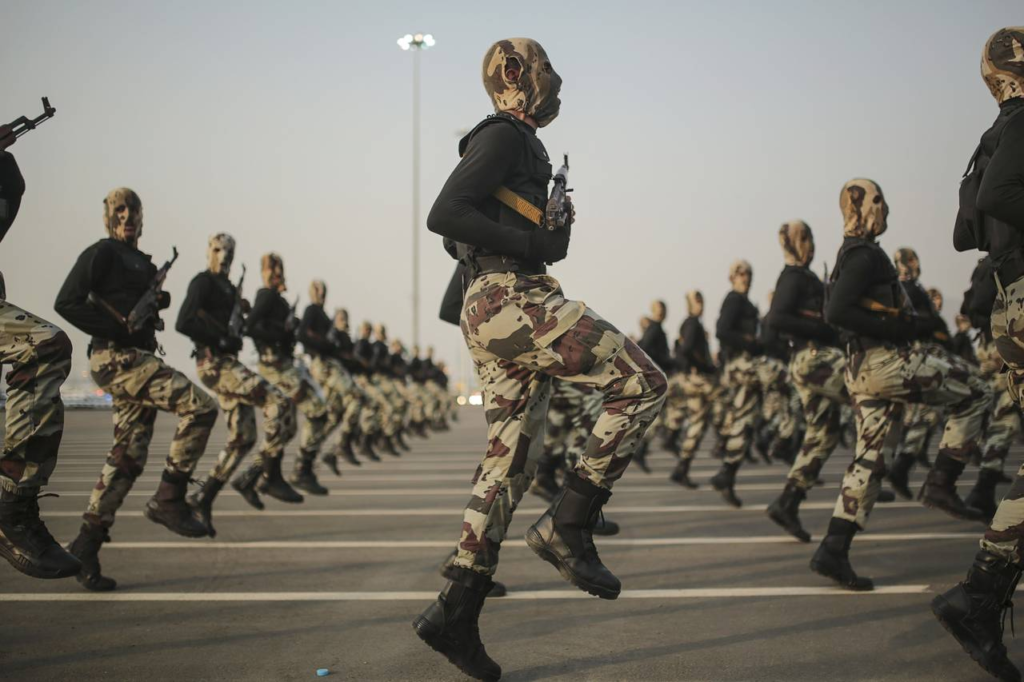
When people think of safety in the Middle East, terrorism is often a concern. Like many countries in the region, Saudi Arabia has experienced terrorist attacks in the past, particularly during the early 2000s. However, the Saudi government has been highly effective in combating terrorism, both domestically and abroad, working closely with international agencies to crack down on terrorist cells and extremist organizations.
According to the U.S. Department of State and other global security agencies, the risk of terrorism in Saudi Arabia is currently low, especially in the major cities and tourist areas. The Saudi government maintains a high level of security, with visible police presence and regular security checks in public spaces. Tourists are unlikely to experience any direct threats related to terrorism, particularly if they stay within well-known tourist destinations and follow local guidelines.
Road Safety in Saudi Arabia

One area where tourists should exercise caution is road safety. Saudi Arabia has one of the highest rates of road accidents in the world. The country’s expansive highways and sometimes erratic driving habits can make the roads dangerous for those unfamiliar with the local driving culture. However, significant improvements have been made in recent years, including stricter enforcement of traffic laws and the installation of more speed cameras.
For tourists, using ride-hailing apps like Uber and Careem is often a safer and more convenient option, especially in the larger cities. These services are widely available and reasonably priced. If you choose to drive, make sure you’re comfortable with local driving practices, and always wear your seatbelt. It’s also essential to be aware that traffic laws in Saudi Arabia can be different from what you’re used to, so it’s a good idea to familiarize yourself with local regulations before hitting the road.
Cultural Considerations: What Tourists Should Know

Beyond crime and terrorism, one of the most important aspects of safety in Saudi Arabia is understanding and respecting the local culture. Saudi Arabia is a conservative Islamic country, and its laws and social customs reflect this. Tourists who fail to adhere to these cultural norms may find themselves facing legal trouble, fines, or even deportation.
One of the most important rules to remember is that Saudi Arabia follows strict Islamic law, particularly in regard to alcohol and drugs. Alcohol is completely banned in the country, and the penalties for possessing or consuming alcohol are severe. Drug offenses are taken even more seriously, with the death penalty being a potential punishment for drug trafficking. Tourists should be extremely cautious and avoid bringing any prohibited substances into the country.
Public behavior is also regulated, especially regarding interactions between men and women. While the government has relaxed many of its laws in recent years, there are still areas where tourists should exercise caution. Unmarried couples should avoid public displays of affection, and women traveling alone may attract attention, though solo female travelers are becoming more common.
Tourists should also be aware that Friday is the holy day in Islam, and many businesses, government offices, and markets close during Friday prayers. While tourist attractions may still be open, it’s a good idea to plan your activities around this weekly break in routine.
Tourism Attractions: What’s There to See?
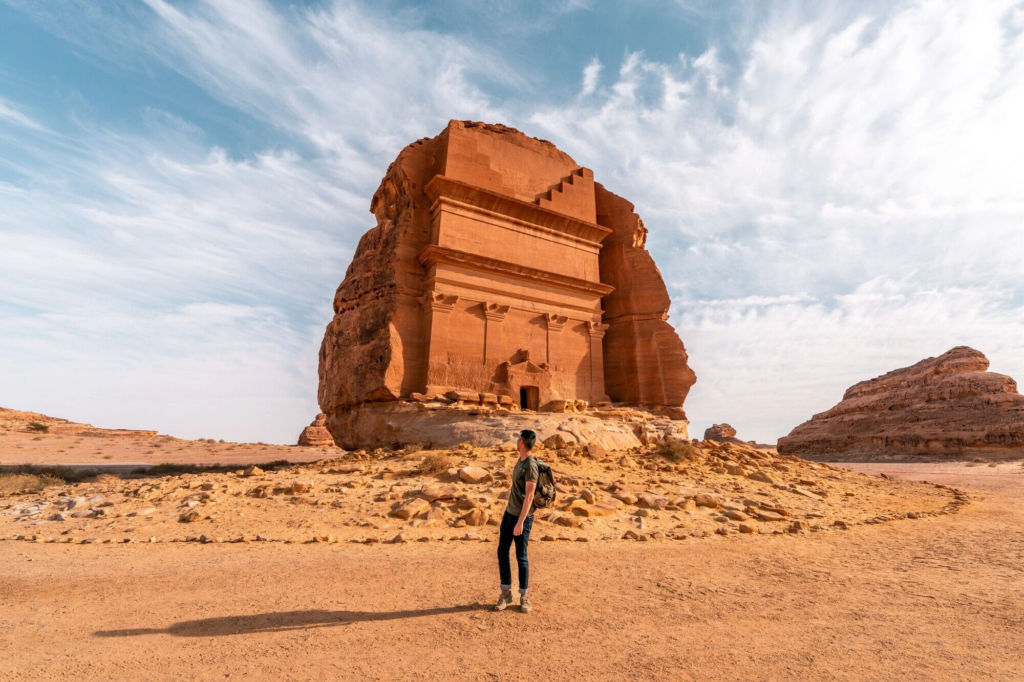
Saudi Arabia has a wealth of attractions for tourists, from its modern cities to its historical sites and natural wonders. The government’s push to boost tourism has resulted in the development of several new attractions, including luxury resorts, entertainment venues, and cultural festivals. Here are some must-visit spots for tourists:
- Riyadh: The capital city offers a blend of modernity and tradition. Visit the National Museum for a deep dive into the history of Saudi Arabia, or explore the stunning King Abdulaziz Historical Center.
- Jeddah: Known as the gateway to Mecca, Jeddah is a coastal city with a rich history. Tourists can explore the UNESCO-listed Al-Balad, the old part of the city, or relax along the beautiful Corniche by the Red Sea.
- Al-Ula: Al-Ula is one of the most exciting new tourism destinations in Saudi Arabia, featuring ancient Nabatean tombs at the UNESCO World Heritage Site of Hegra. It’s often referred to as the Saudi version of Petra.
- The Red Sea: Saudi Arabia’s Red Sea coastline is being developed into a major luxury tourism destination, with pristine beaches, coral reefs, and world-class diving opportunities.
- Mecca and Medina: While these cities are primarily visited by Muslim pilgrims, non-Muslim tourists are permitted to explore the surrounding areas. Both cities offer stunning Islamic architecture and spiritual significance
.
Facts and Statistics About Saudi Arabia’s Tourism Boom
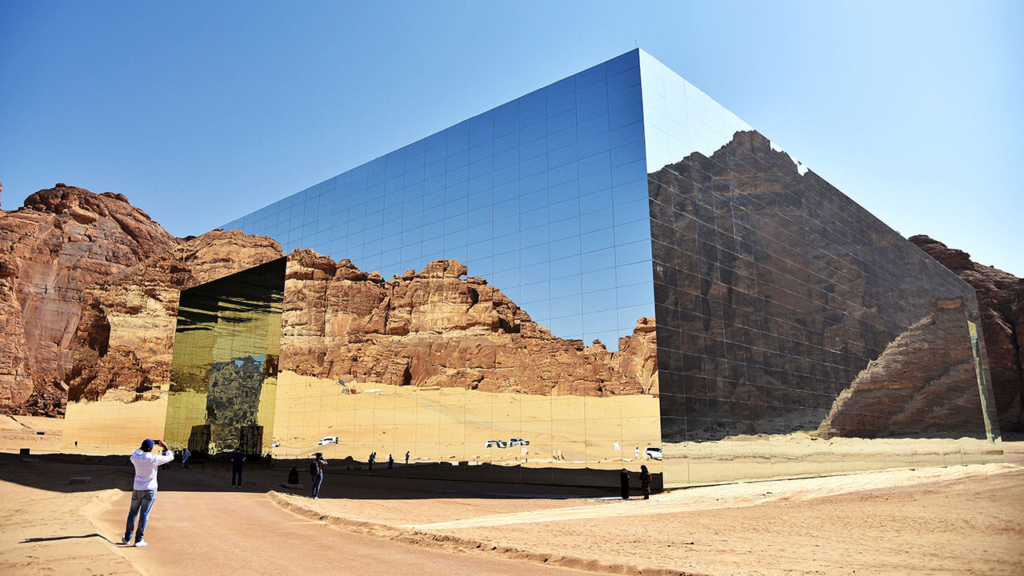
Since opening to international tourists, Saudi Arabia has seen rapid growth in visitor numbers. According to government figures, Saudi Arabia received over 16 million international tourists in 2019, the first year after the tourist visa program was introduced. This number was expected to grow significantly before the COVID-19 pandemic hit, temporarily halting global tourism.
The Saudi government has ambitious plans to attract 100 million visitors by 2030 as part of its Vision 2030 initiative. Major projects like the NEOM megacity, the Red Sea Project, and entertainment hubs like Qiddiya are all part of the strategy to make Saudi Arabia a global tourist hotspot.
Conclusion: Is Saudi Arabia Safe to Visit?
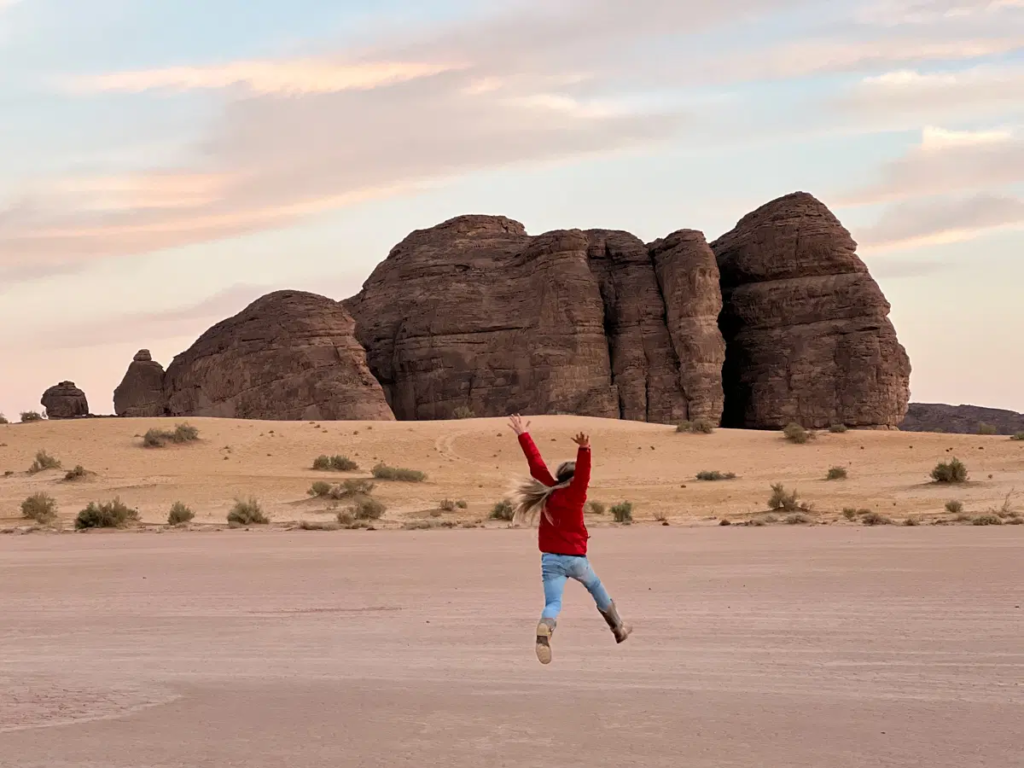
In conclusion, Saudi Arabia is safe for tourists, provided they respect the local customs, laws, and cultural sensitivities. The country’s low crime rates, political stability, and rapidly growing tourism infrastructure make it an increasingly attractive destination for travelers seeking a unique and culturally rich experience.
While there are challenges, such as the need for travelers to be mindful of local laws and customs, these can be easily navigated with proper preparation and awareness. Whether you’re visiting for the ancient sites, modern attractions, or simply to experience the desert landscapes, Saudi Arabia offers a fascinating glimpse into a country undergoing rapid transformation.
For travelers ready to explore the kingdom, Saudi Arabia provides both safety and the opportunity for adventure—making it an emerging destination worth considering.
Read more: What Makes Morocco the Most Attractive Country in Africa








